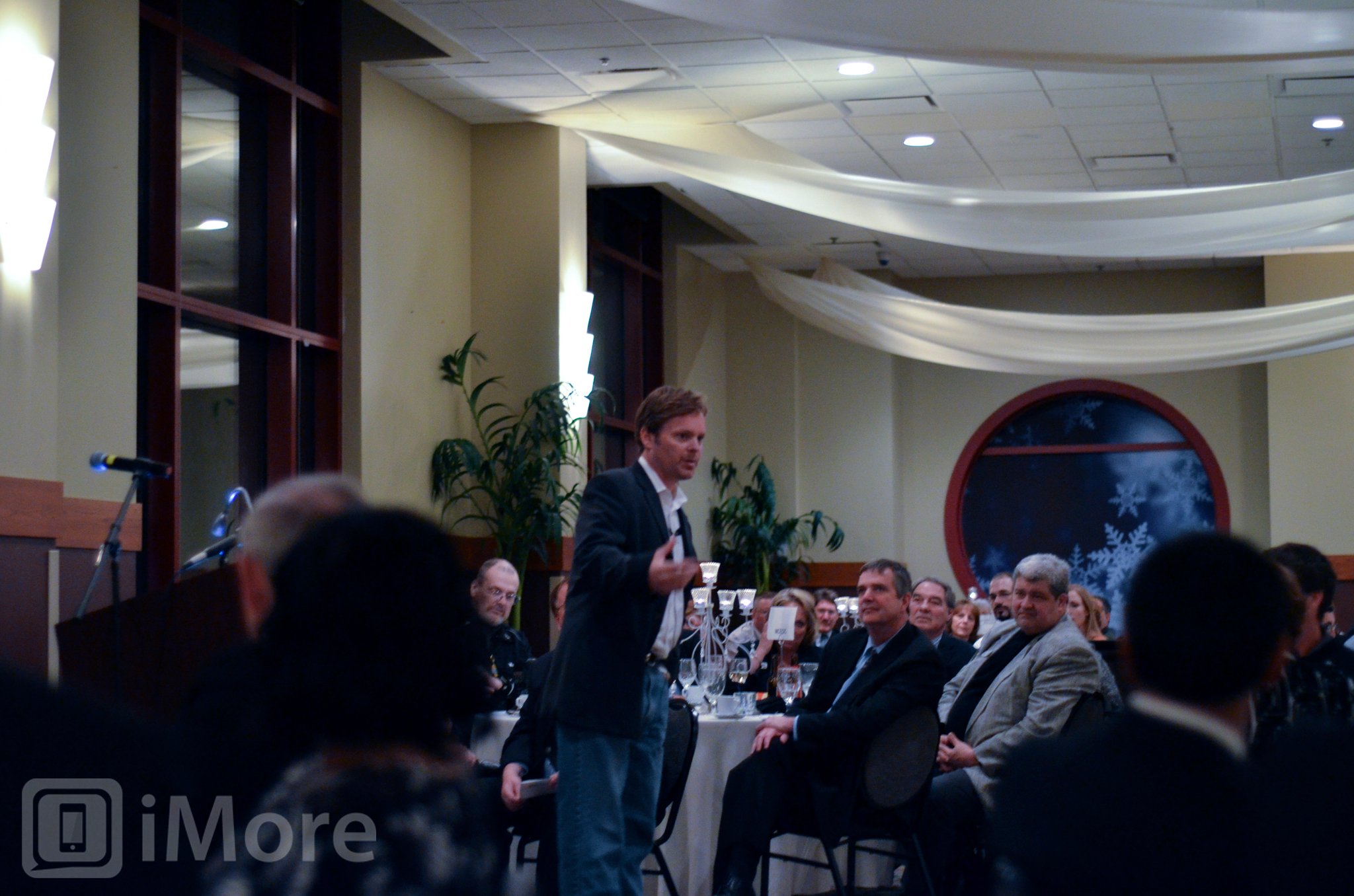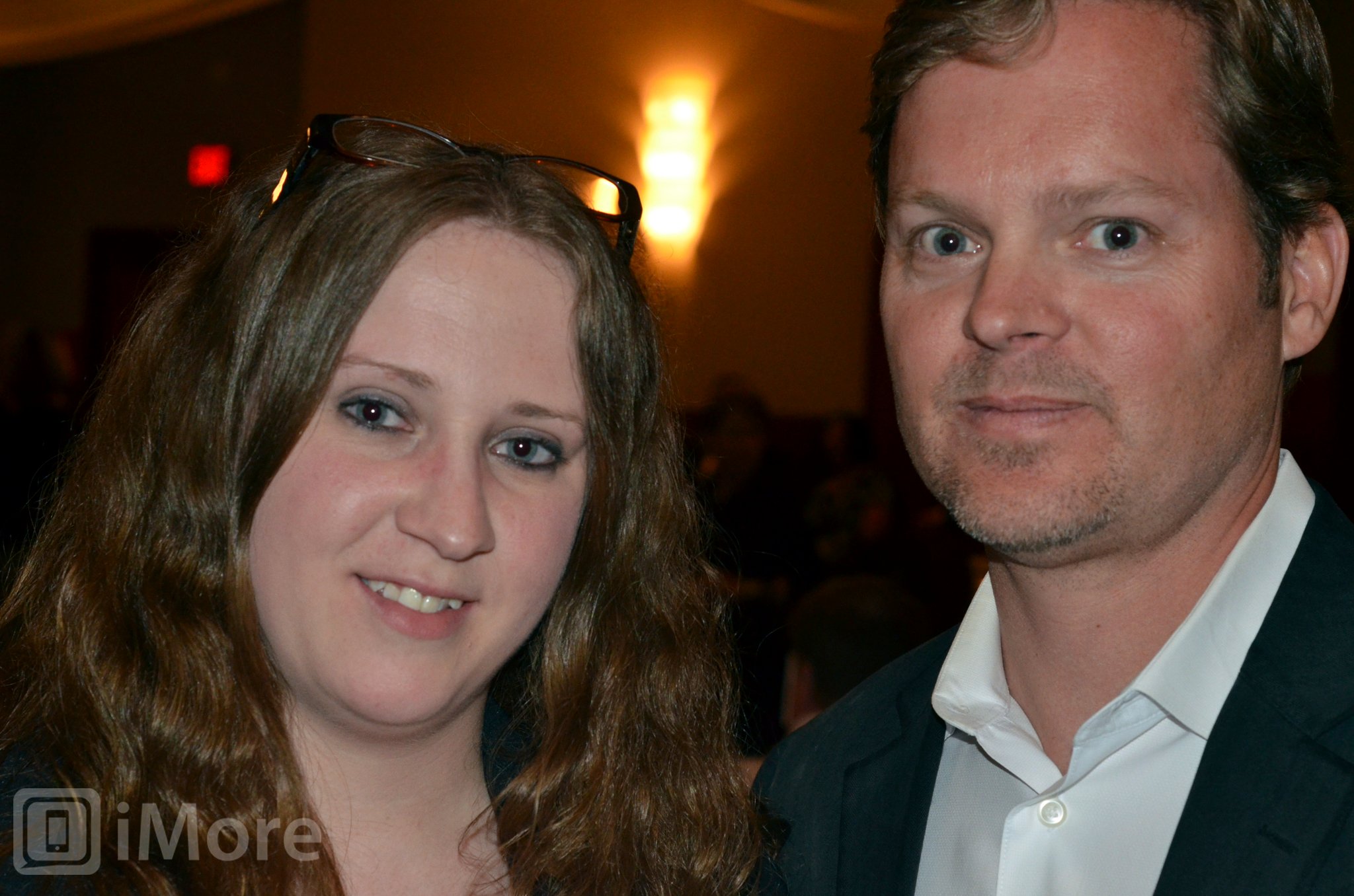Siri co-founder talks to iMore about the future of technology, mobile interfaces, and implementing Siri

iMore offers spot-on advice and guidance from our team of experts, with decades of Apple device experience to lean on. Learn more with iMore!
You are now subscribed
Your newsletter sign-up was successful
Dag Kittlaus, creator of Siri, recently spoke at an economic development event in his hometown of Michigan City, Indiana, and iMore had the chance to listen in and ask him some questions about the challenges they faced in implementing Siri and where he thinks the future of technology is headed. According to Kittlaus, interfaces such as Siri and talking to machines is something we can expect to see a lot more of in the very near future.
In 2007, after becoming frustrated with some management decisions at Motorola, Kittlaus connected with the Stanford Research Institute in Menlo Park, CA. He was hired to come look at their technology and figure out what possible products could be made to be commercialized. This is where he met Adam Cheyer and Tom Gruber, who co-founded Siri. Their first idea actually involved studying twins and DNA. Kittlaus joked about an idea he had to start a company specializing in DNA dating and molecular best matches, but didn't think people were ready for that. Yet...

Kittlaus also talked about what mobile phones were before the iPhone, and how interfaces were rapidly changing.
Mobile phones were just really hard, especially back before the iPhone came out. Phones were tough. It took about 30 clicks to find a ringtone and download it. But what if you could talk to a phone? What if you could just type in a few key words and it understood what you were trying to do and just did it for you? That's pretty powerful. The speech part of it, we didn't even start that part until about a year later. It just didn't work that well. About a year later, speech recognition got really good.
Kittlaus discussed what goes on when you interact with Siri.
First, when you speak it turns the sounds into words. It says "this is what you said". That's not what Siri does. We work with a 3rd party that does that. But what the world didn't have at this point was a machine that could understand what the words meant and do something about it. So that's what Siri does. Even after all the research and development, it took us three years to build it.
The next challenge they faced was getting Siri to interact with humans and getting people to understand what it was. It wasn't Google or a search engine. They didn't want it to take input and simply spit out 10 links. It needed to understand humans and be more human-like. Kittlaus joked about coming up with a tag line:
What are we going to call this thing and make people understand what it is? The first tag line I came up with was "Siri, practically human." Well, it's not really human yet and kind of sucks at this point. We need something better. So this version we'll call "Siri, periodically human." Then we said ok, at a certain point, the next version will be practically human. The version after that will be positively human. Then unfortunately, the version after that will have to be kill all humans.

Siri wasn't an overnight success nor an easy project to implement. During the talk, I had the opportunity to ask Kittlaus about the challenges they faced in implementing Siri.
The first time was -- How do you make all this technology work together and actually deliver this experience of talking to a machine? That's really hard. That's what we spent the first two years doing. After we got acquired by Apple, now we had to take this technology and make it available for 100 million users. That's a completely different type of challenge. Nobody had ever done it before. So the biggest challenge was getting it to work. Especially in the software business, you really need the best people. It's different than many other businesses because the impact of getting the right people means so much more than it does in many other industries. In sales, you can have two sales guys that do as many sales as one guy that's really good. But in software, it can be 50 times or 100 times different because if you don't have a good team, you're going to be writing bad software that all the good guys have to go and clean up later which really slows you down. You can't throw people at a software problem. You really need the best people.
Kittlaus went on to talk about the "law of accelerated returns" which basically states that each generation of a product exponentially doubles in power over the previous technology. Kittlaus pointed out that the iPhone has 10,000 times more computer power than the original Apollo program. If you apply the law of accelerated returns to the rate of technological growth today, we'll advance 20,000 years in the 21st century.
iMore offers spot-on advice and guidance from our team of experts, with decades of Apple device experience to lean on. Learn more with iMore!
If I take 30 steps, I'm over the table. If I take exponential steps, I'm on the moon.
Towards the end of the session a member of the audience asked what the next version of Siri will be like. If I take 30 steps, I'm over the table. If I take exponential steps, I'm on the move. jokingly stated that he couldn't answer that question in fear of the attorneys at Apple, but was able to say that this is just the beginning and we've got a lot to look forward to.
A special thanks to Michigan City Economic Development for hosting such a great event and letting me take part in it!
iMore senior editor from 2011 to 2015.

